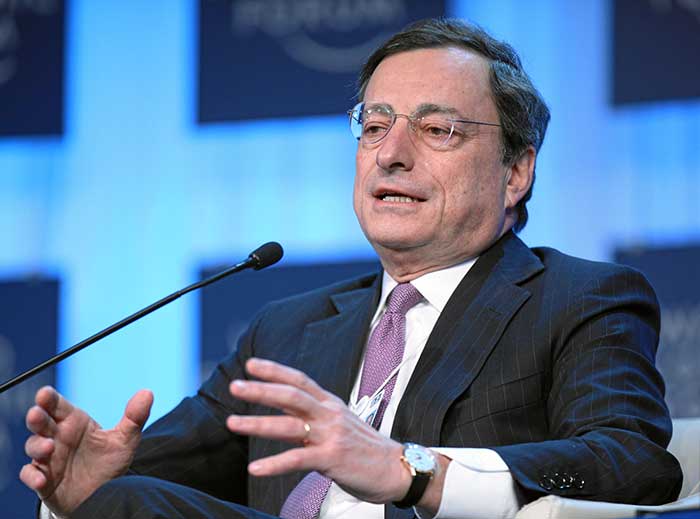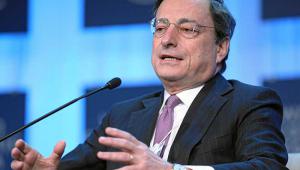web_mario_draghi_-_world_economic_forum_annual_meeting_2012.jpg

Mario Draghi, president of the European Central Bank
As expected, however, the bank’s governing council left its policies of extraordinarily low interest rates and quantitative easing in place despite this and the fact that inflation overshot the target of close to but below 2% for the first time since 2013 last month.
Still, Draghi agreed that the bank’s governors were more upbeat about the outlook, and noted the “urgency” around risks of deflation had dissipated.
Boosted by good data in areas such as inflation and employment, he hit back at simmering eurosceptic sentiment across the continent that some are concerned could win more political influence in key national elections in countries including the Netherlands, France and Germany this year.
“There are tensions but not anything that is serious,” he stated. “In any event ... we are ready, the euro is irrevocable.
“If we go back to when the euro was created there have always been people who said ‘oh, it’s wrong, it’s a mistake, cannot be done’. They still were saying the same during the life of the euro and they are saying the same today.”
The euro has been the cornerstone of the single market and the European Union more broadly, forming a basis for valued solidarity and cooperation on a host of issues from terrorism to migration, he said.
“Without a single market, there is no European Union, so that’s why it’s unrealistic to think anything different from the euro,” he said. “So, to cut it short, the euro is here to stay.”
Jennifer McKeown, chief European economist at analyst firm Capital Economics, agreed that there were some signs of more optimism from the bank, which judged risks to have receded and chose not to schedule further use of an instrument designed to stabilise the banking sector.
However she noted the latest forecast “implied a lack of conviction” about the inflation outlook. While the bank nudged up its projections for growth, those of inflation remained the same (1.6% in 2018 and 1.7% the year after) despite the upbeat figures from February.
She added. “Draghi stressed that even this was contingent on current policy plans, implying that tighter policy would mean a significant undershoot.”
The ECB believes the current rise in inflation will be “transient”, with it driven mostly by increases in energy and food prices. Meanwhile, underlying inflation, which is not affected by such fluctuations, remains subdued.
As a result, the bank said it would keep its main interest rates at zero, with these more likely to be cut than increased in the coming year, and continue its bond-buying programme until the end of the year, although this would be reduced from €80bn per month to €60bn per month as per a decision in December last year.
McKeown said it “seems clear” it would not taper this quantitative easing policy or raise interest rates until inflation has risen in a sustained manner.
“With interest rates unlikely to be increased before the end of 2018, a stark policy divergence with the US Federal Reserve should see the euro fall further against the dollar.”













